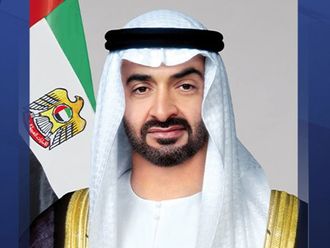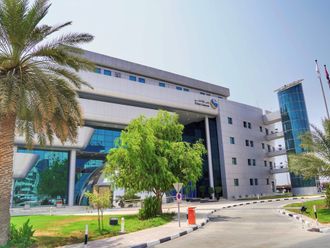Geneva: The UAE called for greater efforts to end human rights violations committed against the Rohingya.
The United Nations Human Rights Council has held its 27th special session on the human rights situation of the Muslim Rohingya minority and other minorities in Myanmar’s Rakhine State.
Speaking at the meeting held at the UN headquarters in Geneva, Obaid Salem Saeed Al Za’abi, UAE Permanent Representative to the United Nations and other international organisations, commended the holding of this extraordinary meeting.
He noted that the UAE was one of the first countries to call on the meeting and has worked alongside other nations within the Islamic Group on preparing and developing a draft consensual resolution to address the reality of the precarious situation the Rohingya Muslims have been living under in Myanmar for several months.
Al Za’abi remarked that in its most recent update, the United Nations Office for the Coordination of Humanitarian Affairs (UNOCHA), reported that 650,000 Rohingya refugees had fled across the border from Myanmar to Bangladesh and live in the most desperate and desolate conditions. Among them, thousands of children live deprived of basic needs and rights, according to a report issued by the Unicef.
Al Za’abi said that since the beginning of the crisis in August this year, the UAE had spearheaded humanitarian aid and relief in the face of these severe humanitarian conditions — to alleviate the hardship of refugees — by ensuring necessary humanitarian support. Furthermore, the UAE established an open air-bridge to provide critical relief supplies as conditions worsened, in addition to offering logistical support to international aid organisations that operate from the International Humanitarian City in Dubai.
He added that the UAE’s assistance continued with the recent announcement of the provision of $7 million (Dh25.7 million) during the donor conference for the Rohingya refugee crisis held in Geneva on October 23, 2017. The Emirates Red Crescent also rolled out the third phase of its Rohingya refugees’ relief programme in Bangladesh in November, he continued.
Al Za’abi emphasised the need to intensify efforts to put an end to the inhumane practices of the Myanmar authorities against the Rohingya Muslim minority and other minorities, including attacks, crimes and other systematic violations, referred to by the High Commissioner for Human Rights as ethnic cleansing.
In the meantime, the draft resolution raised to the special session of the Human Rights Council considered these as crimes against humanity.
In light of the urgency of this precarious situation, Al Za’abi called on the international community for continued support of humanitarian organisations, and for pressuring the Government of Myanmar into complete and unconditional cooperation with these agencies, including the safe and smooth transit of aid to all those who need it around the country.
He also urged relevant United Nations bodies to implement their various mandates to ensure the restoration of peace and security in the Rakhine state as a prerequisite for achieving reconciliation and peaceful coexistence in the whole region.










